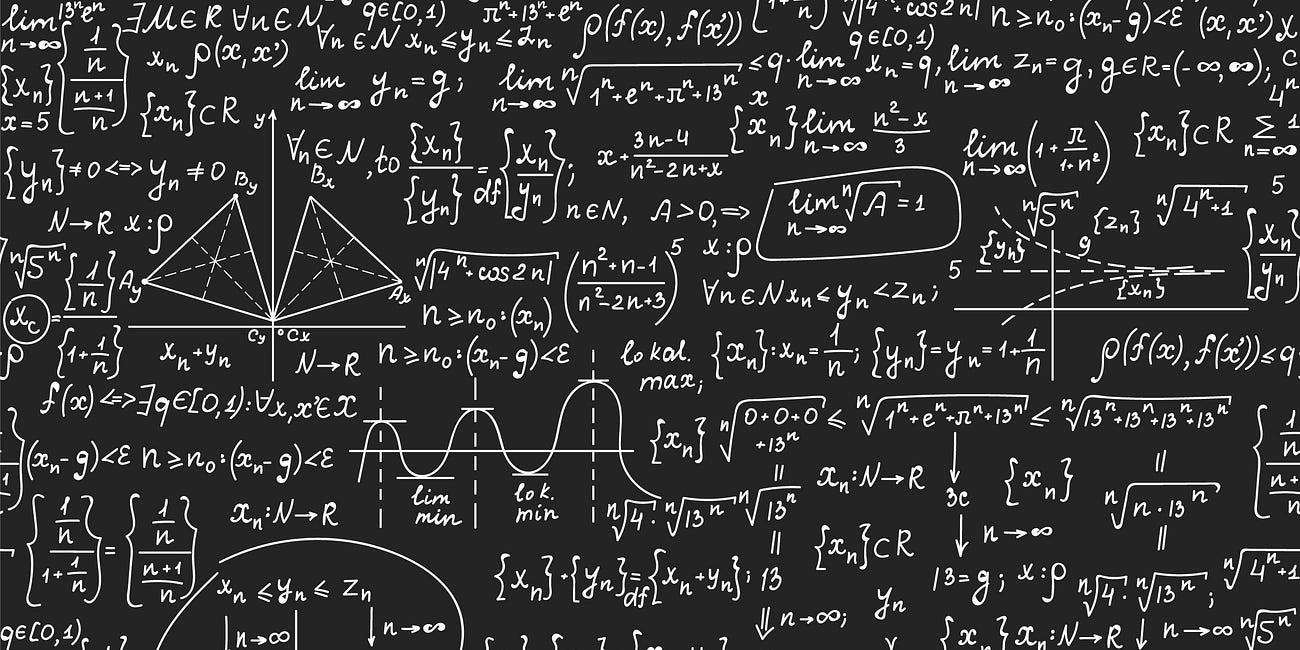w, The Missing Constant, Revealed. Article 2. An Equation for Finding the Square Root of Any Number
More is revealed about this unusual number.
A few years back, twiddling at 3 am on an expression I thought might lead to an equation to find the square root of any number, I was delighted to see that I could achieve values very close to sqrt(x) using
sqrt(x) = e^(log10(x)*y)
I recall zooming in on my spreadsheet and toggling values of y, so I could visualize how far from sqrt(x) these values were. Of course, I could have solved for y - had I evidence that the equation was reliable, that would have been justified. However, remember, this was a challenge to find an equation unknown to find sqrt(x), from intuition.
As I zeroed in a value of y using various values of x, I found I could, by adding more digits, achieve higher accuracy. This was a good sign. The improved accuracy of the estimate persisted over values of x. Successive approximation at its best.
The value I was zeroing in on was
y ≈ 1.151292546497…
I kept going…
y ≈ 1.15129254649702284…
Clearly, for this equation to work across all values of x, 1.15129254649702284…, or y, had to have some clear meaning.
Satisfied, I went to sleep.
As I lay there, I turned the equation over in my mind
sqrt(x) = e^(log10(x)*1.15129254649702284…)
sqrt(x) = e^(log10(x)*y)
I considered the equation and wondered if y itself was a function of other numbers, scaled via log10, the natural log, ln.
Upon this possibility, I once again returned to my spreadsheet to toggle values. Eventually, I found that y was also exactly found via 2ln(10)/4, or one-quarter of twice the natural log of 10. Clearly, this is an odd way to express a number, since y is also exactly ln(10)/2. We’ll see why the former was preferred in due course.
If this was important, ln(10)/4 it might need a symbol. The first one that came to mind was w.
So, w = ln(10)/4.
And my equation became
sqrt(x) = e^(log10(x)*2w) where w = ln(10)/4.
The mix of exponents and two forms of logarithms seemed unusual. It can be observed in the equation for finding the square root of a number, this number w bridges base 10 and the natural log.
Therefore, I suspected that y, or w might have other features.
Next time, you’ll see I was right… w indeed has interesting features. Many.
One of them is
f(x,n) = e^((4/n)*log10(x)*w
As a challenge, I’ll leave that there for the interested to ponder, and we’ll discuss this function, most likely next Friday.
If you’re with me this far in recounting my journey, I am glad. If you’re lost, that’s on me.
Feel free to leave any comments or questions. As we work through this series, you will come to know and love w = ln(10)/4 = 0.57564… as well as you know (or should know) pi, i, e, and φ. Stay with the series, you’re in for some surprises.
pi - Wikipedia
e - Wikipedia
i - Wikipedia
φ - Wikipedia
Related
Meet w, the Missing Mathematical Constant about Which You Have Never Heard.
I’ve just posted on X (formerly known as Twitter): I am curious if any of the tens of thousands of people who will read this can tell me more about w. I know quite a bit (that’s a teaser). w = ln(10)/4 = 0.575646... Please share with anyone who you think might be curious.





I’m interested to see what comes of your constant w. But here’s a quick summary of the algebra:
sqrt(x) = x^(1/2) = exp(ln(x^(1/2)) = exp(ln(x)/2) = exp(log10(x)/(2log10(e))) = exp(log10(x)*y) where y = 1/2log10(e) = 1/(2ln(e)/ln(10)) = ln(10)/2ln(e) = ln(10)/2*1 = ln(10)/2 = 2w, where w = ln(10)/4.
And
f(x,n) = exp((4/n)*log10(x)*w) = (exp(log10(x)*2w))^(2/n) = (sqrt(x))^(2/n) = (x^(1/2))^(2/n) = x^((1/2)*(2/n)) = x^(2/2n) = x^(1/n) = nth_root(x)
The big question is why you’d want a more difficult and expensive calculation than what you started with. Calculating roots is much “cheaper” than logarithms.
Why use the decimal logarithm and mix it with natural exponential? Not everyone in the universe has 10 fingers. Generally, a^b = exp (b ln a), which means that when you have the complete theory for exp and ln, then you also have the complete theory for f(x)^g(x) (i.e., limits, continuity, differentiability, derivatives). Then other base logs can be written as log_b (x) = (ln x)/(ln b), so knowing how the natural logarithm works means you know how all other logarithms with any other base works. The point of base e is that the derivative of exp(x) is equal to itself. This is the main reason why it is interesting. Another approach is to start by defining ln x first by integrating 1/x; can't do that for any other base, because starting with no log functions defined, you need log functions to define log functions via rational integral for every base except for the natural one.